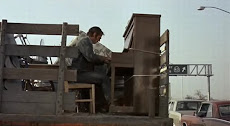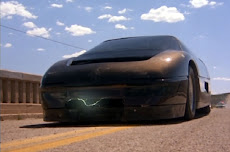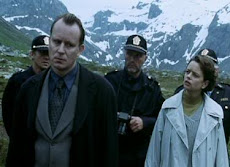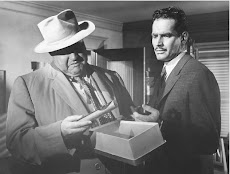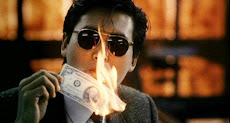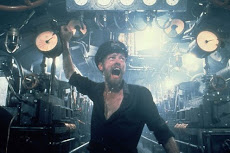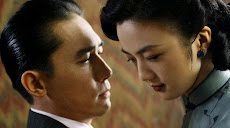Now that I live in Wyoming, undoubtedly closer to the fictional town of Calumet, Colorado (and Las Vegas, New Mexico, the town filmed as the setting) than I was in my metro Detroit-based youth, my ties to Red Dawn (1984) grow stronger. Alas, upon seeing the recent trailer for the remake of Red Dawn (2012)--which will finally be released this Thanksgiving following years of development and politically correct marketing quagmire--these ties heighten my disgust. It's also a shame to have to distinguish the glorious title with a year now. In short, I don't suspect RD2012 will be entering the hallowed halls of the "OTOH, Remakes" fortress.
But since I have only had the chance to scoff at the RD2012 trailer, specifically the latter half where it's revealed the North Koreans have invaded America with a super-secret weapon that fits in a briefcase, I will instead divert this into a positive, even joyful review of RD1984.
WOLVERINES!
That's right.
It's 1984, and the Cold War goes hot. The Soviet Union is bent on world domination, and they've almost succeeded-- NATO's dissolved, etc., etc. With clever strategy they invade the United States, coming over the Bering Strait and through Alaska, in planes disguised as commercial transports, and even support this with tactical nuclear strikes against major U.S. cities. It's also revealed that the Soviets invaded China, likely using nuclear weapons to take out over half of its population.
But in the U.S. all is not Hitler goes to France circa 1940. This is, after all, America.
Jed Eckert (Patrick Swayze), a sort-of recent high school graduate, rescues his brother Matt (Charlie Sheen, in his second appearance in this series of posts!) and his classmates Robert (C. Thomas Howell), Daryl (Darren Dalton), Danny (Brad Savage), and Aardvark (Doug Toby) from their high school as the Soviets descend onto the playground. They narrowly escape in the confusion, and head out of town to Mr. Morris's (Robert's father's) service station--easily the coolest, most diversely-stocked service station to ever grace the face of the earth.
After packing up everything they'll need to survive into Jed's Chevy pickup (which makes a sad disappearance far too soon afterward, likely due to its broken radiator), the boys head into the mountains to wait it out. By the time they receive information (their radio is also destroyed during their escape), they learn they're deep in occupied territory, and are joined by two other young escapees, Erica (Lea Thompson) and Toni (Jennifer Grey).
After the small band of kids witnesses various atrocities by the Russian and Cuban (etc.) occupiers, they decide to fight back. Jed and Matt, in particular, are encouraged by their imprisoned father:
(What is it with Harry Dean Stanton making the best cameos? Take this, The Straight Story and even the recent Avengers flick... the guy is practically a PhD thesis. (Hm...))
And so it begins. They are no longer kids, they are...
After packing up everything they'll need to survive into Jed's Chevy pickup (which makes a sad disappearance far too soon afterward, likely due to its broken radiator), the boys head into the mountains to wait it out. By the time they receive information (their radio is also destroyed during their escape), they learn they're deep in occupied territory, and are joined by two other young escapees, Erica (Lea Thompson) and Toni (Jennifer Grey).
After the small band of kids witnesses various atrocities by the Russian and Cuban (etc.) occupiers, they decide to fight back. Jed and Matt, in particular, are encouraged by their imprisoned father:
(What is it with Harry Dean Stanton making the best cameos? Take this, The Straight Story and even the recent Avengers flick... the guy is practically a PhD thesis. (Hm...))
And so it begins. They are no longer kids, they are...
WOLVERINES!
The acting varies widely. From Harry Dean Stanton to Powers Boothe (the only adult to join the Wolverines), the supporting cast is excellent. Swayze, still up-and-coming in the mid-'80s, is outstanding, as is his Outsiders co-star C. Thomas Howell. Sheen, Jennifer Grey and the rest of the Wolverines, however, are rather lackluster. Some would grow and go on to have distinguished careers, others would not.
But it's the story the actors are playing that deserves the most criticism, and Red Dawn is objectively silly throughout. The Soviets take America by surprise, but can't handle a few kids? Of course, the Soviets encountered some very real, and quite unsolvable, problems with guerrilla warfare in Afghanistan in the 1980s, but the Wolverines aren't exactly experienced (and CIA-trained and funded) Mujahideen. Many of their attacks on the commies are downright comical, summoning First Blood (but not quite Rambo) ratios of force. Even Swayze ain't Stallone.
But it's not all bad. One of the best aspects of Red Dawn is its isolation: we're never shown what's going on in major cities, or on the many other fronts of World War III. It's quite possible that the soldiers the Wolverines are up against are just as inexperienced, since the best forces are probably allocated elsewhere. And although it's hardly Band of Brothers in its strategic authenticity, the message of RD1984 is sound: when up against the Evil Empire, don't back down. This is a timeless message for any film, especially when juxtaposing real ideologies against one another, and this is all too absent in modern cinema.
So, does message trump art sometimes? I wouldn't say that, but I would say it makes up where certain other qualities lack.
Oh, come on, seriously, in case of Soviet invasion, you don't want to go out this way?
But it's the story the actors are playing that deserves the most criticism, and Red Dawn is objectively silly throughout. The Soviets take America by surprise, but can't handle a few kids? Of course, the Soviets encountered some very real, and quite unsolvable, problems with guerrilla warfare in Afghanistan in the 1980s, but the Wolverines aren't exactly experienced (and CIA-trained and funded) Mujahideen. Many of their attacks on the commies are downright comical, summoning First Blood (but not quite Rambo) ratios of force. Even Swayze ain't Stallone.
But it's not all bad. One of the best aspects of Red Dawn is its isolation: we're never shown what's going on in major cities, or on the many other fronts of World War III. It's quite possible that the soldiers the Wolverines are up against are just as inexperienced, since the best forces are probably allocated elsewhere. And although it's hardly Band of Brothers in its strategic authenticity, the message of RD1984 is sound: when up against the Evil Empire, don't back down. This is a timeless message for any film, especially when juxtaposing real ideologies against one another, and this is all too absent in modern cinema.
So, does message trump art sometimes? I wouldn't say that, but I would say it makes up where certain other qualities lack.
Oh, come on, seriously, in case of Soviet invasion, you don't want to go out this way?
WOLVERINES!










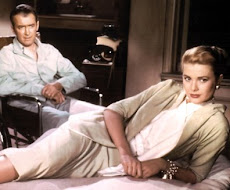_01.jpg)



